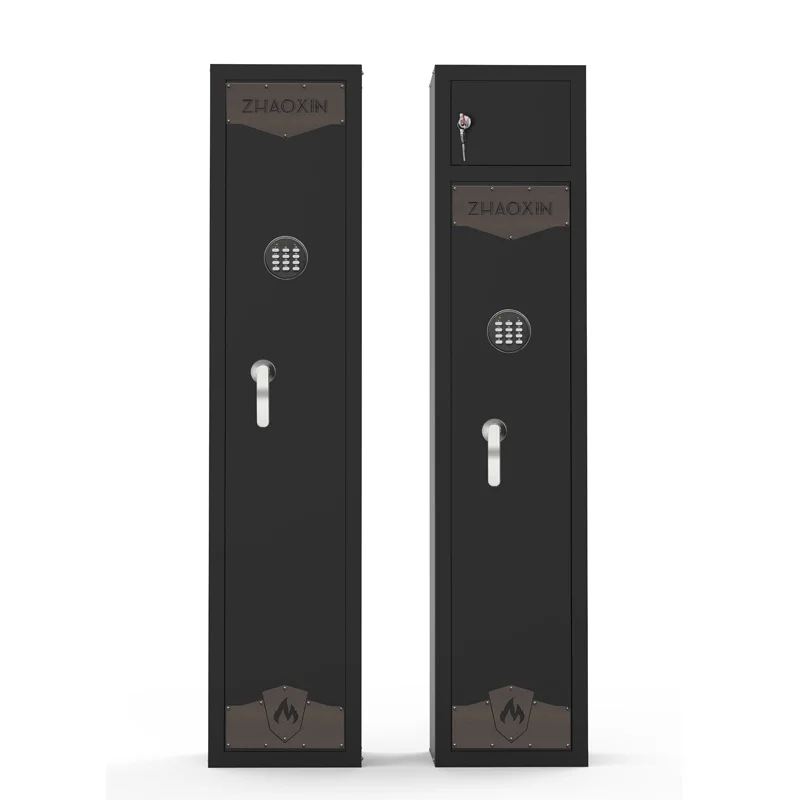The Durability and Sustainability of Metal Cabinets
Why Metal Cabinets Excel in Durability and Sustainability
Built to Last: Corrosion-Resistant Materials
Metal cabinets excel in longevity due to their construction from corrosion-resistant materials such as stainless steel and galvanized steel. These materials ensure that the cabinets can withstand harsh environments, making them a sustainable choice for varied settings. According to industry statistics, metal cabinets with proper maintenance can last over 20 years, which is a testament to their durability compared to wooden alternatives that often start showing signs of wear within a decade. This extended lifespan not only reduces the frequency of replacements but also minimizes waste, aligning with environmentally responsible practices.
Structural Integrity in High-Traffic Environments
Designed to withstand heavy usage, metal cabinets are ideal for high-traffic environments like warehouses and industrial settings. Due to their robust construction, they maintain structural integrity significantly better than plastic or wood counterparts. Research supports this, indicating that metal cabinets sustain their form and function under frequent use, making them a preferred choice for areas requiring endurance and reliability. Their ability to endure high-impact usage further highlights their contribution to sustainable storage solutions, as they reduce the need for frequent replacements and repairs.
Recycled Steel Content and Circular Design
The use of recycled steel in metal cabinets plays a vital role in promoting a circular economy by reducing the demand for virgin materials. The World Steel Association suggests that using recycled steel can save up to 74% of energy and dramatically cut down greenhouse gas emissions. This approach not only underlines the environmental advantages of recycling but also emphasizes the ongoing cycle of sustainability in metal cabinet production. Integrating recycled steel supports resource efficiency and waste reduction, proving that metal cabinets are more than just durable—they are a sustainable investment for the future.
Bonroy Fire-Proof Metal Cabinet: Security Meets Eco-Design
Military-Grade Steel Construction
Bonroy's fire-proof metal cabinets are engineered with military-grade steel, ensuring unparalleled durability and resistance against fire and impact. This construction not only provides superior security but also contributes to sustainability by significantly extending the lifespan of the cabinets. By using robust materials like military-grade steel, Bonroy enhances both the security and sustainability of its products, meeting both safety standards and eco-friendly expectations.
Simultaneous Locking System for Asset Protection
Bonroy cabinets are designed with an advanced simultaneous locking system that ensures maximum security for valuable assets by engaging multiple locking points. This innovative system significantly reduces the risk of unauthorized access, providing peace of mind by effectively protecting investments. By integrating this sophisticated locking mechanism, Bonroy enhances the security of personal and business assets.
Modular Design for Reduced Material Waste
The modular design of Bonroy cabinets makes them an eco-friendly choice by allowing for simple assembly and disassembly, effectively reducing material waste during production. This design philosophy not only aligns with sustainability goals but also offers flexibility for customization, catering to diverse user needs. Through modularity, Bonroy demonstrates a commitment to environmental conservation while meeting functional demands.
Environmental Benefits of Metal vs. Traditional Materials
Lower Carbon Footprint Than Wood Alternatives
Metal cabinets present a significantly lower carbon footprint compared to their wood counterparts, primarily due to the energy-intensive processes required in harvesting trees. Unlike wood, whose extraction involves considerable deforestation and land degradation, metals like steel can be produced and recycled with relatively lesser environmental impact. Studies reveal that the embodied carbon of steel, when evaluated over its entire lifecycle, is markedly lower than that of wood, thus making metal a greener choice for eco-conscious designs.
End-of-Life Recyclability Advantages
The recyclable nature of metal cabinets offers considerable environmental advantages over traditional materials like plastics and treated wood, which often end up in landfills. Metal's recycling process is notably efficient, requiring significantly less energy consumption compared to mining and processing new materials from ore. Consequently, metal cabinets stand out as a sustainable option, benefiting both the environment and your long-term investment.
Resistance to Moisture & Pest Damage
In stark contrast to wood, metal cabinets boast exceptional resistance to moisture, effectively preventing issues like mold growth and structural degradation. This attribute enhances their durability and lifespan, adding to their appeal as a sustainable storage solution. Furthermore, metal cabinets are impervious to pest infestations, a prevalent issue with wooden storage solutions, thus offering a robust and maintenance-free option. Incorporating these benefits highlights metal cabinets as a superior choice in both durability and sustainability, aligning with modern design trends that emphasize long-lasting and eco-friendly materials.
Maximizing Sustainability Through Proper Care
Non-Toxic Cleaning Methods
Using non-toxic cleaning methods is essential for maintaining metal cabinets without causing environmental harm. Opting for eco-friendly cleaning solutions not only preserves the cabinet's finish but also reduces harmful emissions and waste. Such practices contribute positively by improving indoor air quality and safeguarding ecological systems. Many green cleaning products are now available that efficiently remove dirt and grime while being gentle on both the planet and the user. Adopting non-toxic cleaning methods aligns with sustainable living and helps in extending the cabinet lifespan without compromising the environment’s health.
Preventative Maintenance for Longevity
Regular preventative maintenance is vital for ensuring the longevity of metal cabinets. By routinely checking for signs of rust, wear, or damage, you can prolong the life of these cabinets significantly. Establishing a maintenance schedule not only minimizes the likelihood of costly repairs but also reduces the environmental impact over time. By fixing small issues before they become significant problems, you are saving resources and decreasing waste. A well-maintained cabinet is not only more cost-effective in the long run but also supports your sustainability goals.
Responsible Disposal and Recycling Options
When metal cabinets reach the end of their life cycle, responsible disposal and recycling should be the priority. Metal cabinets offer a significant advantage over other materials due to their recyclability. To further enhance sustainability efforts, familiarize yourself with local recycling programmes to ensure that the used metal is channeled back into useful products rather than ending up in a landfill. Engaging in responsible recycling practices helps reduce waste and supports the continuous cycle of resource renewal, reflecting a commitment to eco-friendly practices and sustainable development goals.
Frequently Asked Questions
What makes metal cabinets more durable than wooden ones?
Metal cabinets are constructed from corrosion-resistant materials like stainless steel and galvanized steel, which allow them to withstand harsh environments without degrading, unlike wooden cabinets which often deteriorate within a decade.
Are metal cabinets environmentally friendly?
Yes, metal cabinets are environmentally friendly. They have lower carbon footprints compared to wood, utilize recycled steel, and are fully recyclable at the end of their life cycle.
How do metal cabinets contribute to sustainability?
Metal cabinets contribute to sustainability by having a long lifespan, being made with recycled materials, and being fully recyclable. Their durability means fewer replacements, which reduces waste and resource consumption over time.
Can metal cabinets be used in high-traffic areas?
Yes, metal cabinets are ideal for high-traffic areas due to their robust construction that maintains structural integrity under heavy usage, unlike plastic or wood alternatives.
What are some maintenance tips for extending the life of metal cabinets?
Regularly check for signs of rust or damage, use non-toxic cleaning methods to preserve the cabinets' finish, and establish a maintenance schedule to address small issues before they become significant problems.

 EN
EN







































